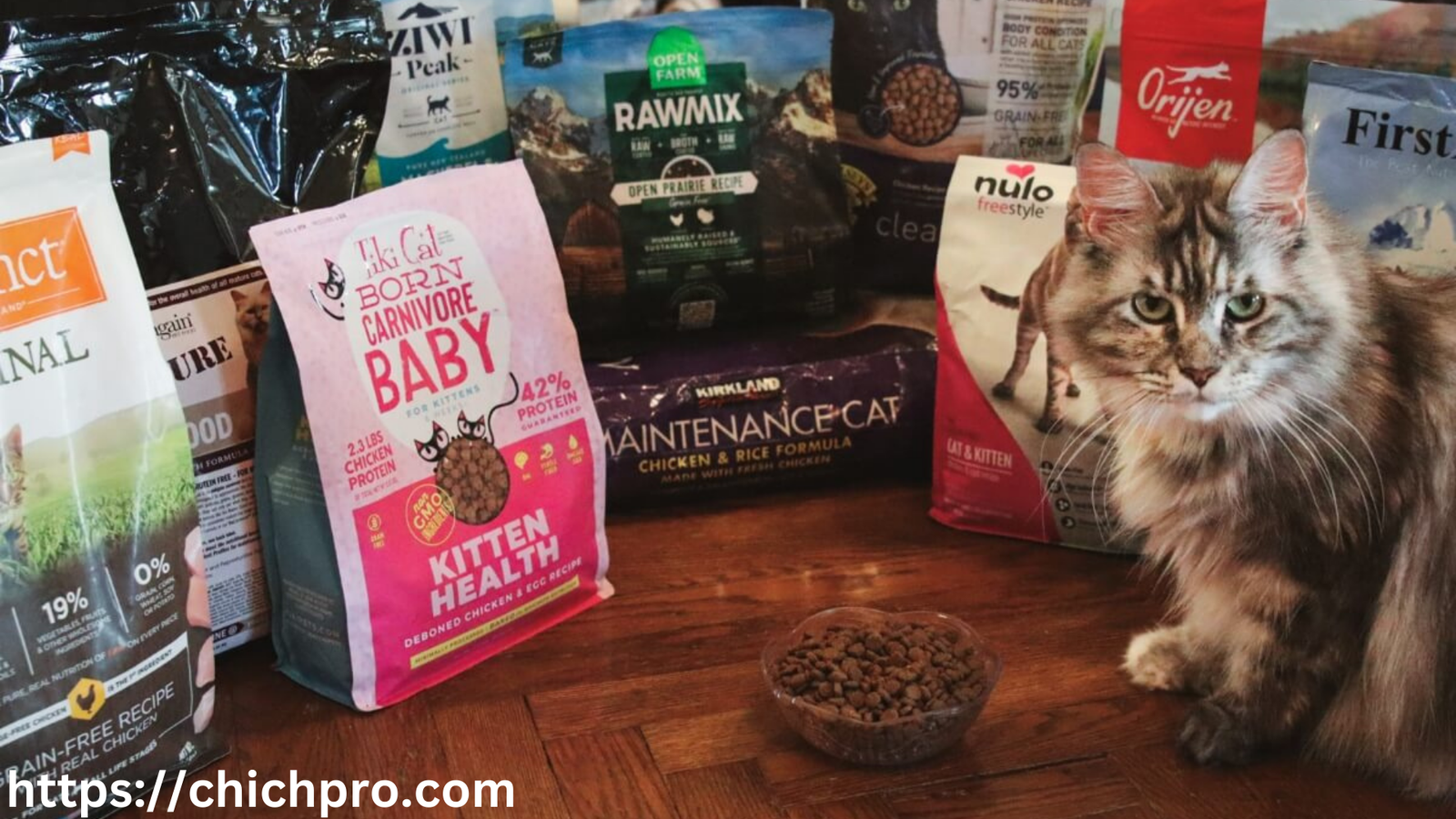Hello there!
When it comes to your kitten’s health, nothing is more vital than providing the appropriate nourishment. Just like human babies, kittens have special dietary demands that lay the basis for a healthy, happy existence. In this tutorial, we’ll explore all you need to know about the finest cat food for kittens.
What Makes a Good Cat Food for Kittens?
Kittens are bundles of energy, growing at an incredible rate, and their nutrition needs to keep up. So, what should you look for in kitten food?
Essential Nutrients for Growing Kittens
Proteins and Amino Acids
Protein is the building block of life, and kittens need plenty of it. Look for foods rich in high-quality animal proteins, which give vital amino acids like taurine for proper development.
Vitamins and Minerals
Kittens require calcium and phosphorus for healthy bones and teeth, as well as vitamins like A, D, and E to boost their immune system.
Healthy Fats
Omega-3 and Omega-6 fatty acids are necessary for brain development and a beautiful coat. Look for items that include fish oil or chicken fat.
The Role of Moisture in Kitten Food
Kittens are naturally drawn to moist diets, which can help keep them hydrated and improve urinary tract health.
Balanced Caloric Content
Kittens consume calories faster than adult cats, thus their diet should have a higher caloric density to fuel their endless energy.
Types of Kitten Food
When searching for kitten food, you’ll find various options, each with its own benefits and cons.
Wet vs. Dry Kitten Food
Wet Food: Offers hydration, simpler to chew, and often more pleasant.
Dry Food: More inexpensive, handy, and helps with dental health.
Raw and Homemade Diets for Kittens
While some pet parents swear by raw or homemade diets, they require careful preparation to guarantee sufficient nutrition.
Grain-Free Options: Pros and Cons
Grain-free diets can be useful for kittens with specific allergies, but they’re not necessarily better unless your physician recommends them.
Top Recommendations for Kitten Food
Here are some top-rated kitten food brands that balance quality and affordability:
High-Quality Commercial Brands
Blue Buffalo Healthy Growth Kitten Food
Known for its natural nutrients and additional antioxidants, Blue Buffalo is a favorite choice for developing kittens.
Royal Canin Kitten Formula
Tailored for kittens, Royal Canin offers exact nutrients to support their growth spurt and digestive health.
Purina Pro Plan Kitten Food
Packed with DHA for brain and vision development, Purina Pro Plan offers a budget-friendly yet nutritional solution.
Specialized Diets for Unique Needs
If your kitten has allergies or certain health concerns, consider specialty formulas developed to treat such issues.
How to Transition Your Kitten to New Food
Switching diets rapidly can upset your kitten’s stomach. Follow these steps for a smooth transition:
Gradual Transitioning Steps
Start by mixing a tiny portion of the new food with the old, gradually increasing the ratio over 7-10 days.
Signs of Adjustment or Allergies
Watch for vomiting, diarrhea, or increased scratching, which could suggest a reaction to the new food.
Tips for Feeding Kittens
Portion Sizes and Feeding Schedule
Feed kittens smaller, frequent meals—about 3-4 times a day. Adjust portion sizes based on their age and weight.
Common Mistakes to Avoid
Avoid overfeeding, serving only one type of food, or giving too many snacks, as these might lead to fussy eating or health issues.
Conclusion
Choosing the right diet for your cat is an investment in their future health. Whether you prefer wet, dry, or raw diets, the goal is to ensure the food fits their nutritional demands. With the appropriate decisions, your furry friend will develop into a strong, healthy adult cat.
FAQs
Q1. What is the optimum timing to transition kittens to adult cat food?
Most kittens can move to adult food at 12 months of age, depending on their breed and growth rate.
Q2. Can kittens eat homemade food?
Yes, but only if it’s correctly balanced with important nutrients. Consult a vet before creating homemade meals.
Q3. How do I know if my kitten is allergic to certain foods?
Watch for signs including vomiting, diarrhea, or skin irritation after eating. If these occur, visit your vet.
Q4. Is it allowed to feed kittens human food as treats?
Some human meals, like cooked chicken, are safe in moderation. Avoid poisonous foods like onions, garlic, and chocolate.
Q5. How much should a kitten consume every day?
Kittens need roughly 200-300 calories daily, distributed into numerous little meals. Adjust according on age and exercise level.


